Tema Motorway Interchange, the Major Crossroad of West Africa’s Corridor Completed with National Celebration
Day:2025.03.07
event |
In February 2025, the Project for the Improvement of the Tema Motorway Roundabout (Phase2) was finally completed. Ten years after the preparation of Phase 1, the region's biggest traffic bottleneck has been transformed into a multi-level interchange. Residents expressed their delight, with comments such as, "My commuting time has been cut in half," and "I’m less worried about accidents."
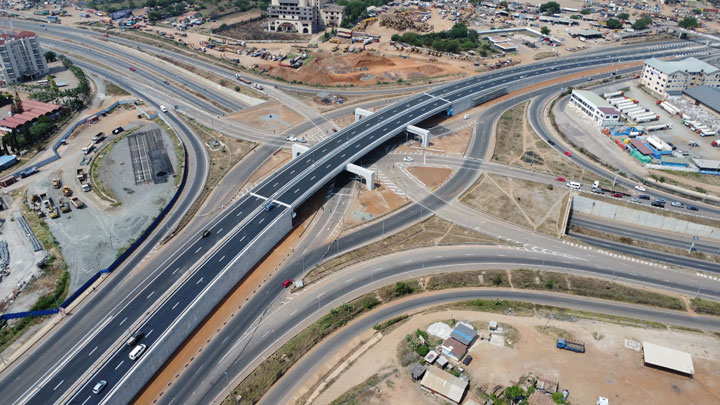
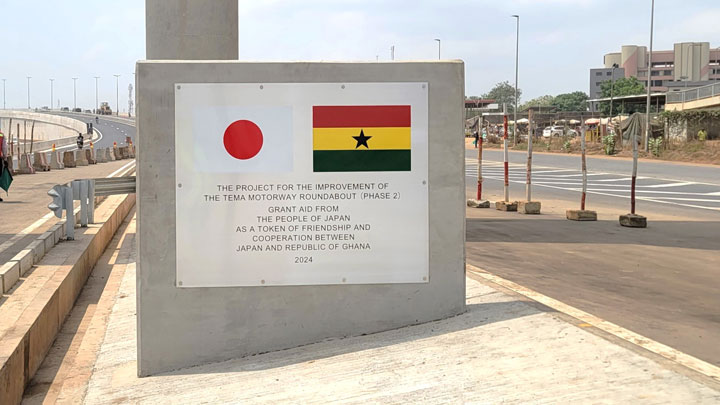
Completed Tema Motorway
Road improvement of a total of 14.5 km, including a 2.1 km east-west section and a 1.9 km north-south section, connecting roads, pedestrian bridges and service roads, featuring a 190m underpass road (box culvert).
Road improvement of a 1.8 km north-south section, including a 142m overpass (3-span continuous steel plate girder bridge).
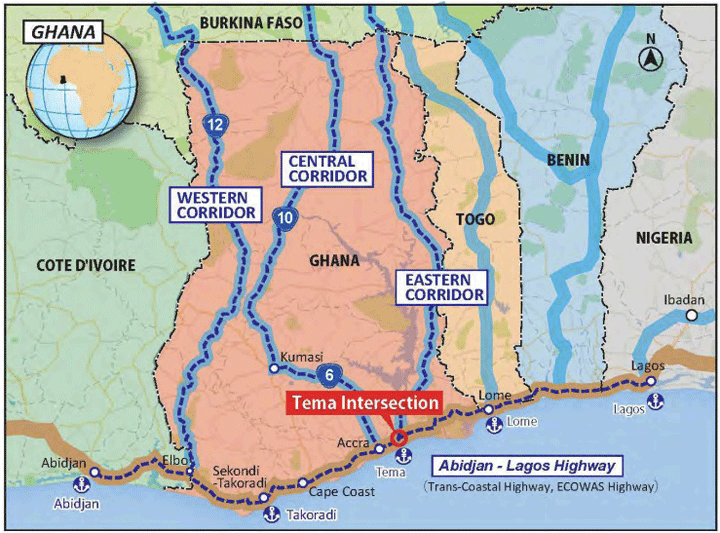
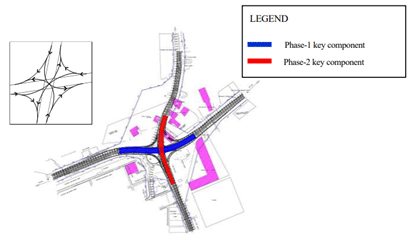
The Tema motorway interchange is located at the crossroads of the “West African artery,” where the Abidjan-Lagos Corridor and the Eastern Corridor intersect. The volume of cargo handled at Tema Port has been increasing at an average annual rate of approximately 10% since 2000, making it the largest sea gateway for Ghana, and it also plays a vital role in transporting cargo to inland countries such as Burkina Faso and Mali. However, the five-way roundabout at the intersection, handling 120,000 vehicles per day at-grade, caused chronic traffic congestion during peak hours. Traffic speeds dropped to below 10 km/h, and daily traffic jams exceeding 1 km became common, hindering smooth traffic flow.
Initially, the Government of Ghana requested a complete grade separation with a multi-level interchange to fully separate traffic. However, considering the project scale, land acquisition, and relocation of houses and shops, it was decided to implement the project in two phases: Phase 1, which put the east-west direction underpass with mid-level intersection, and Phase 2, which elevated the north-south direction.
This project embodies the corridor development for “West Africa Growth Ring Master Plan” formulated by JICA in 2018 and contributes to the development of the entire West African region. By resolving severe traffic congestion and supporting the smooth movement of people and goods, it is expected to create a virtuous cycle of investment promotion and market expansion, leading to sustainable and resilient economic growth.
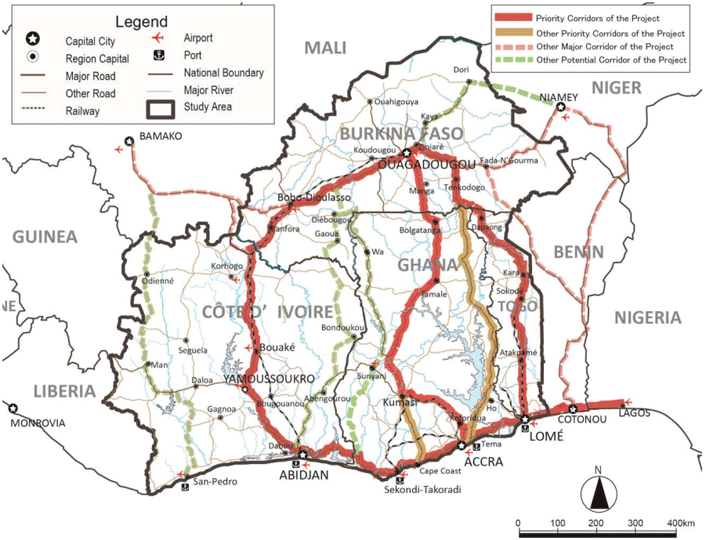
West African Growth Ring corridors prioritized for development (red solid lines):
(Left to right) Abidjan-Ouagadougou, Accra-Ouagadougou, Lomé-Ouagadougou Corridors
(Below) Abidjan-Lagos Corridor
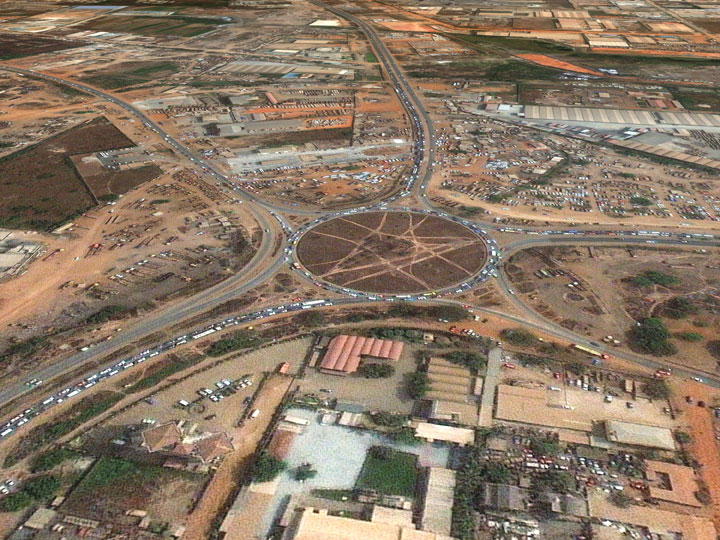
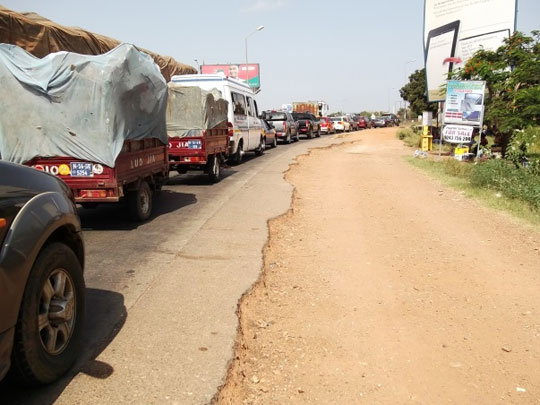
Before Phase 1: Queues started at the intersection, and on some roads, traffic stretched for more than 1 kilometer.
In Ghana, insufficient maintenance after infrastructure construction due to unstable government budget is a major issue. In particular, reactive maintenance is the common approach for roads and bridges and rehabilitations are often carried out only after the damage occurs and expands, leading to higher costs and longer rehabilitation periods. In light of these circumstances, the project adopted long-life coated steel plates for the steel bridge in the overpass, extending the interval for recoating to more than double that of ordinary steel, thereby achieving high-quality infrastructure that meets Ghanaian needs. Ghanaian government engineers expressed their satisfaction, stating, "It is excellent infrastructure that balances both economic efficiency and constructability, and reduces maintenance costs."
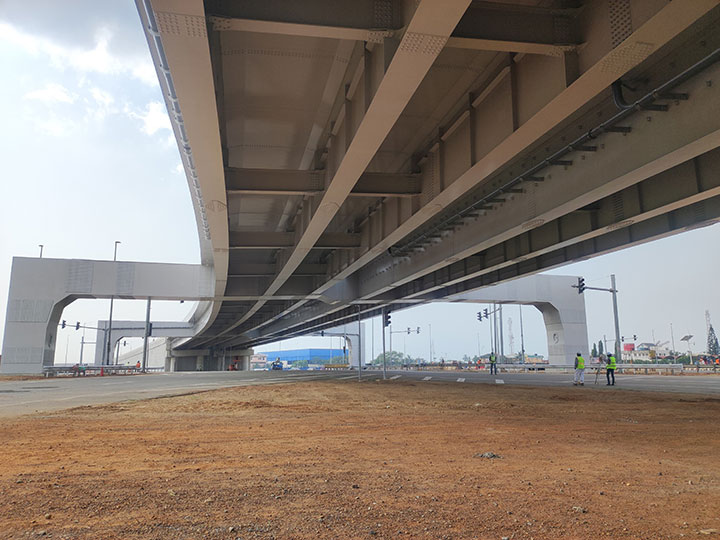
Since the start of construction, construction personnel have continued to conduct cleanup activities every Friday after lunchtime around the construction site with the aim of building ties with neighboring communities and raising environmental awareness among all staff. Regardless of nationality or position, everyone participated in the activities and vicinity with garbage bags in hand. "Garbage never disappeared completely, but through these activities, awareness of environmental beautification that we fostered took root in each individual. The sight of everyone working together as one during cleanup time became a great source of pride for our project," said the Project Manager for contractor, JFE Engineering.
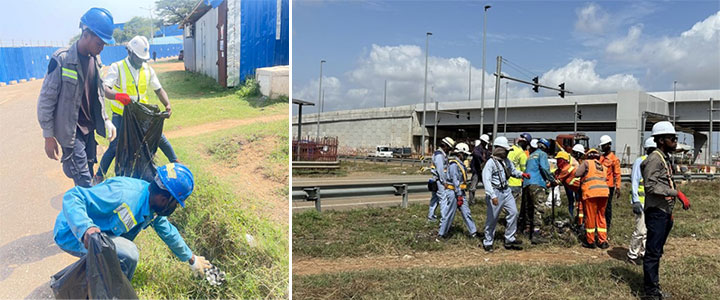
Japanese company and partner company employees participating in cleanup activities together.
Prior to completion, the opening ceremony for the overpass was held in December 2024.
Attended by then President Akufo-Addo, the Minister of Roads and Highways, the Minister for Foreign Affairs and Regional Integration, and the Regional Minister for Greater Accra, and many other high-ranking government officials, the event was broadcast live on Ghana Broadcasting Corporation (GBC), attracted significant attention from public and media. President Akufo-Addo expressed his deep gratitude to Japan and called on the nation, stating, "This motorway is a gift to us all, and we must responsibly use it in perpetuity." He renewed his determination to vigorously promote domestic economic development, using this interchange as a foundation. Furthermore, the government of Ghana painted the bridge abutments with the Japanese and Ghanaian national flags, making the bridge a symbol of friendship between the two countries.
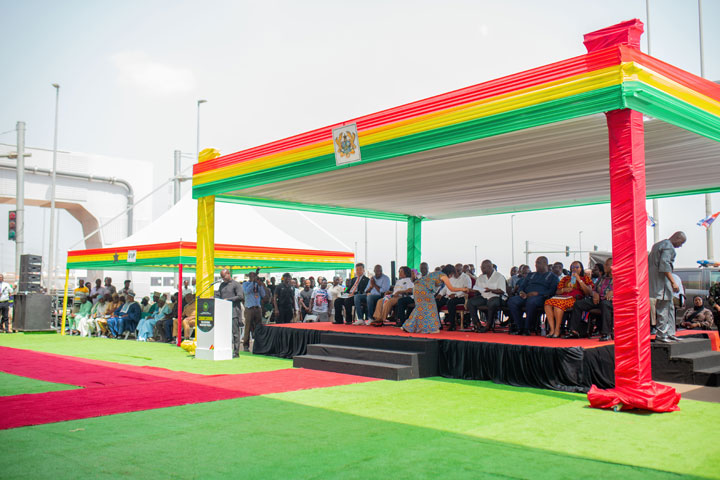
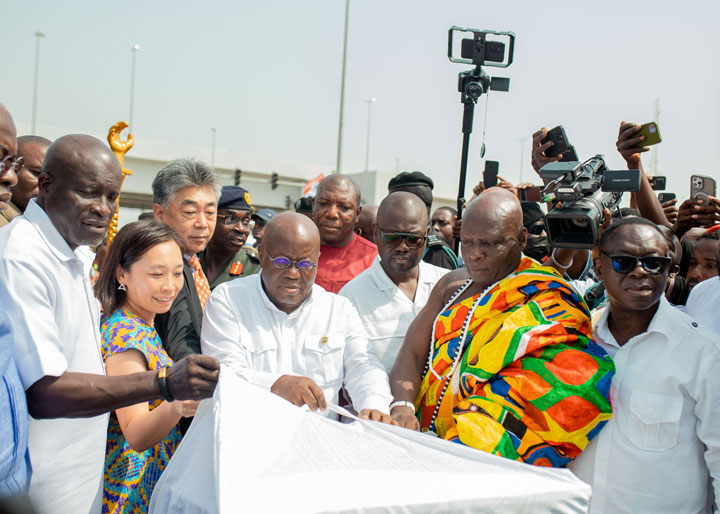
scene from the opening ceremony
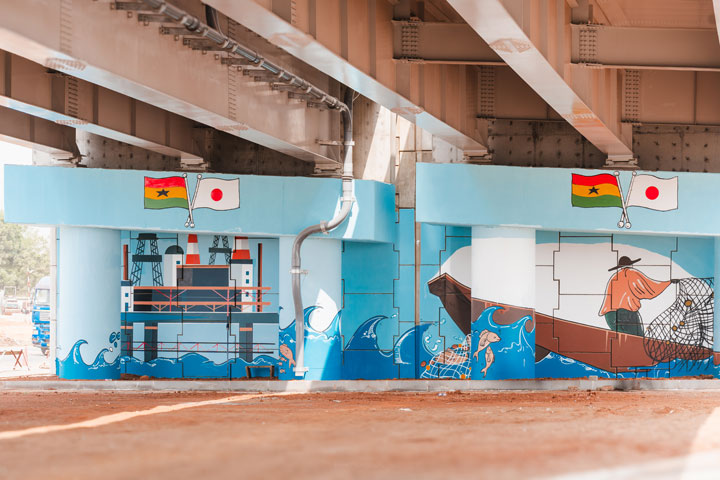
The flags of both Japan and Ghana adorned the bridge abutments.
scroll